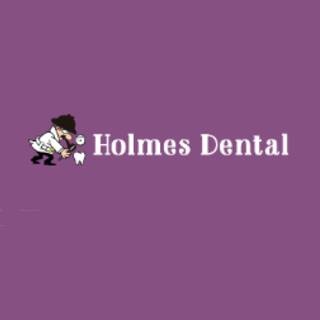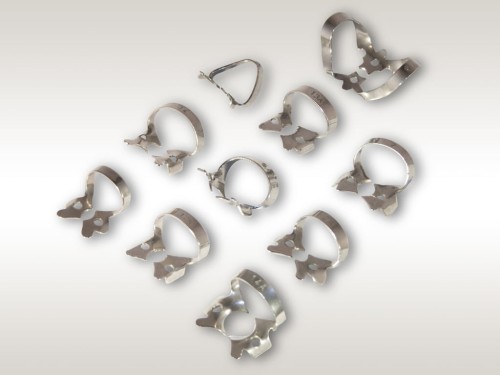
Most Popular
 Importance of Anti-Fog Solutions in Dental Care and Dentistry
Importance of Anti-Fog Solutions in Dental Care and Dentistry
Dentistry is a broad term, where minor tools, equipment range, ...
 Rubber Dam Clamp Placement and Its Uses
Rubber Dam Clamp Placement and Its Uses
Rubber dam clamp placement is a crucial technique in dentistry, ...
How Denture Gum Abrasion Affects Oral Health: Exploring the Impact
Denture gum abrasion, a common issue among denture wearers, can ...



How Denture Gum Abrasion Affects Oral Health: Exploring the Impact
Denture gum abrasion, a common issue among denture wearers, can have significant implications for oral health. When the gums are repeatedly irritated and rubbed by ill-fitting or poorly designed dentures, they become susceptible to inflammation, soreness, and even infection. This constant friction can lead to tissue damage, including gum recession and ulceration. Moreover, compromised gum health can contribute to other oral problems such as bad breath and difficulty chewing, affecting one's overall quality of life. Therefore, understanding the impact of denture gum abrasion is crucial in promoting oral health and ensuring the comfort and well-being of denture wearers.
How to Treat Denture Gum Abrasion: Treatment Options and Recommendations
Treating denture gum abrasion involves addressing both the underlying cause of the irritation and providing relief for the affected tissues. One effective approach is to consult with a dentist or prosthodontist who can assess the fit and condition of the dentures and make necessary adjustments or replacements. Additionally, using denture adhesives or soft liners can help cushion the gums and reduce friction. Proper oral hygiene practices, including regular cleaning of both the dentures and the gums, can also promote healing and prevent further irritation. In severe cases, topical medications or oral rinses may be prescribed to alleviate pain and inflammation.
What Materials Are Best to Avoid Denture Gum Abrasion?
Choosing the right materials for dentures is essential in preventing gum abrasion and ensuring comfort for the wearer. Soft, flexible materials such as silicone or thermoplastic resin are often preferred as they conform to the shape of the gums and exert less pressure during chewing and speaking. Additionally, dentures with smooth surfaces and rounded edges are less likely to cause friction and irritation. It's crucial to avoid hard or rough materials that can exacerbate gum abrasion and lead to discomfort or injury. Consulting with a dental professional can help determine the most suitable materials for individual needs and preferences.
How Denture Fit Impacts Gum Abrasion: Importance and Considerations
The fit of dentures plays a significant role in preventing gum abrasion and maintaining oral health. Ill-fitting dentures can shift or rub against the gums during normal activities like eating and talking, causing friction and irritation. Over time, this constant pressure can lead to gum recession, inflammation, and even sores. Therefore, ensuring proper denture fit is crucial in minimizing the risk of gum abrasion and discomfort. Regular dental check-ups and adjustments are necessary to address any changes in the jaw or gums that may affect the fit of dentures. Additionally, using denture adhesives or relining materials can help improve stability and reduce movement, thereby reducing the likelihood of gum abrasion.
What Are the Long-term Effects of Denture Gum Abrasion?
The long-term effects of denture gum abrasion can be detrimental to oral health and overall well-being. Chronic irritation and friction from poorly fitting dentures can lead to persistent inflammation, gum recession, and tissue damage. Over time, this can weaken the supporting structures of the teeth and jawbone, increasing the risk of tooth loss and bone resorption. Moreover, untreated gum abrasion can contribute to oral infections, discomfort, and difficulty eating or speaking. In severe cases, it can impact one's confidence and quality of life. Therefore, addressing denture gum abrasion early and effectively is essential in preventing long-term complications and maintaining optimal oral health.
How to Recognize Early Signs of Denture Gum Abrasion
Recognizing the early signs of denture gum abrasion is crucial in preventing further damage and discomfort. Common symptoms include redness, swelling, and tenderness of the gums, especially in areas where the dentures come into contact. Some individuals may also experience bleeding or ulceration of the gum tissue. Persistent soreness or difficulty wearing dentures comfortably are also indicators of potential gum abrasion. Regular self-examinations and dental check-ups can help detect these signs early and prompt appropriate interventions to address the underlying causes and prevent worsening of the condition.
What Are the Common Causes of Denture Gum Irritation?
Several factors can contribute to denture gum irritation and abrasion, including poor denture fit, inadequate hygiene practices, and the use of certain materials or adhesives. Ill-fitting dentures that are loose, worn, or improperly adjusted can rub against the gums, causing friction and inflammation. Poor oral hygiene, such as insufficient cleaning of the dentures or gums, can lead to the accumulation of plaque and bacteria, further exacerbating irritation. Additionally, using harsh or abrasive materials in denture fabrication or adhesive products can irritate sensitive gum tissue. Understanding these common causes is essential in preventing denture gum irritation and promoting oral health and comfort.